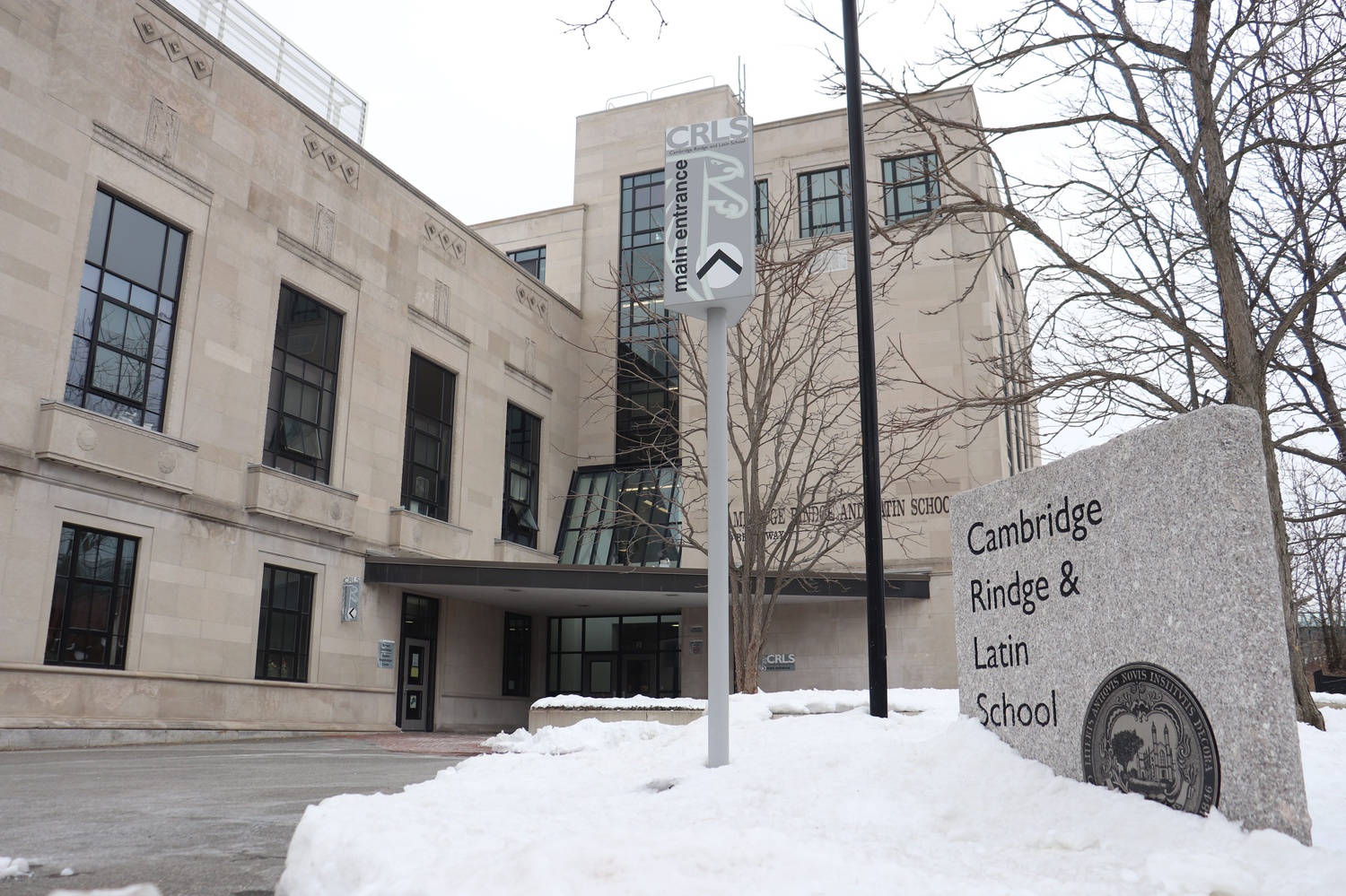
News
Summers Will Not Finish Semester of Teaching as Harvard Investigates Epstein Ties

News
Harvard College Students Report Favoring Divestment from Israel in HUA Survey

News
‘He Should Resign’: Harvard Undergrads Take Hard Line Against Summers Over Epstein Scandal

News
Harvard To Launch New Investigation Into Epstein’s Ties to Summers, Other University Affiliates

News
Harvard Students To Vote on Divestment From Israel in Inaugural HUA Election Survey
Cambridge Public School Committee Reiterates Commitment to AP African American Studies Amid National Strife

Amid national controversy surrounding Advanced Placement African American Studies, Cambridge Public School Committee unanimously passed a motion reemphasizing the district’s commitment to the course at a meeting Tuesday.
The College Board introduced the AP course this year, after a decade of development by teachers and professors around the country. Harvard professors Henry Louis Gates Jr. and Evelyn Brooks Higginbotham, who teach the Introduction to African American Studies course at Harvard, advised the development of the AP course.
Gates praised the course in an interview with Inside Higher Ed, saying it “provides students with a firm foundation of facts and evidence about this extraordinarily rich saga of American history.”
The AP course was introduced in the 2022-2023 school year, with Cambridge Rindge and Latin School being one of 60 chosen to pilot the program. Grace K. Clemente — a CRLS student and representative on the Committee who introduced the motion reiterating CPS’ support for the curriculum — was one of the first students to take the course last semester.
“I think it was probably one of the most, if not the most amazing courses, I’ve ever taken in my life,” Clemente said.
The Florida Department of Education wrote a letter to the College Board on Jan. 12 stating that the AP African American Studies course “lacks educational value,” a belief which Clemente said was “egregious.”
After hearing about Florida Governor Ron DeSantis’ plan to ban the course in Florida public schools, Clemente was motivated to bring the motion to the committee alongside fellow student representative, Adelina R. Escamilla-Salomon.
“There’s so much value that goes into this course, and so much intentionality behind creating the course, that I think it was really, really a huge step forward,” Clemente said.
During the meeting’s public comment portion, some CRLS students also said they support the motion. Helen Hailemariam, who took the course last semester, said many students including herself were “brought to tears” during a classroom discussion following DeSantis’ statements.
“Over the course of the semester, the class not only became a space for learning about history that was representative of my lived experiences, but also a space where I could express my fullest self,” Hailemariam added.
David J. Weinstein, a member of the School Committee and parent to two CPS students, said the student’s commitment to the course was “really clear” and that the course “stands out as a really welcoming place.”
“I think this really shows the power of an inclusive curriculum,” Weinstein added. “You certainly can’t understand American history if you don’t understand Black history — you can’t understand world history if you don’t understand Black history.”
School Committee member Ayesha M. Wilson said she stands “in solidarity” with the motion as a Black educator. During the meeting, Wilson recounted a time when she was reading a book with eighth graders in a classroom and said her students were not familiar with the full extent of Black history and believed it started merely with “slavery.”
“Our history does not start with slavery,” Wilson said. “And there’s just so much more that our young people need to know.”
José Luiz Rojas Villareal, a member of the School Committee, proposed expanding the motion to include an Ethnic Studies curriculum — an amendment that was successfully adopted.
After more than an hour of public comment and discussion, the entire motion was passed unanimously.
While Clemente said the motion’s passage is a positive step, she added that it is important that School Committee members continue to uplift student voices and extend their commitment to African American studies beyond this singular vote.
“How are we going to work towards this beyond just passing this motion — beyond today?” she asked. “What are we going to do, what steps are we going to take to really see this start, to really make an impact?”
Escamilla-Salomon said this motion presents the Committee with an opportunity to advance the diversity of experiences within CPS classrooms and AP curricula.
“When you feel represented in a classroom, when you feel represented by history, by the story that’s being told, you’ll show up,” Escamilla-Salomon said.
—Staff Writer Sally E. Edwards can be reached at sally.edwards@thecrimson.com. Follow her on Twitter @sallyedwards04.
—Staff Writer Ayumi Nagatomi can be reached at ayumi.nagatomi@thecrimson.com. Follow her on Twitter @ayumi_nagatomi.
Want to keep up with breaking news? Subscribe to our email newsletter.
